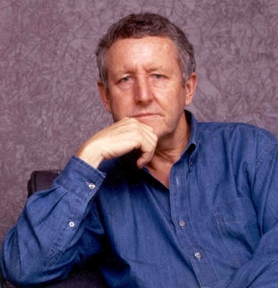A Quote by Bruce Lipton
A person's health isn't generally a reflection of genes, but how their environment is influencing them. Genes are the direct cause of less than 1pc of diseases: 99pc is how we respond to the world.
Related Quotes
Yes, genes are important for understanding our behavior. Incredibly important - after all, they code for every protein pertinent to brain function, endocrinology, etc., etc. But the regulation of genes is often more interesting than the genes themselves, and it's the environment that regulates genes.
Epigenetics doesn't change the genetic code, it changes how that's read. Perfectly normal genes can result in cancer or death. Vice-versa, in the right environment, mutant genes won't be expressed. Genes are equivalent to blueprints; epigenetics is the contractor. They change the assembly, the structure.
The study of how substances alter gene expression is part of the field of epigenetics. Some chemical exposures appear to turn on and turn off genes in ways that disregulate cell growth and predispose for cancer. From this perspective, our genes are less the command-and-control masters of our cells and more like the keys of piano, with the environment as the hands of the pianist.
The choices you make each day in your diet and lifestyle have a direct influence on how your genetic predisposition is expressed - for better and for worse. You're only as old as your genes, but how your genes are expressed may be modified by exercise, diet and lifestyle choices much more than had previously been believed - and more quickly.
Cheetah genes cooperate with cheetah genes but not with camel genes, and vice versa. This is not because cheetah genes, even in the most poetic sense, see any virtue in the preservation of the cheetah species. They are not working to save the cheetah from extinction like some molecular World Wildlife Fund.
Genes which allow females to be less inhibited leave fewer copies of themselves than genes which persuade them to remain highly selective. Among males, the best strategy is exactly the opposite one. The maximum advantage goes to those males with the fewest inhibitions. "Love 'em and leave 'em" is not so much a nasty peice of male chauvinist piggery as an accurate reflection of biological reality.
We've just done a five-day retreat at the Chopra centre and people who went to the meditation retreat saw their anti-ageing enzyme increase by 40 per cent. We looked at their 23,000 genes and the self-healing genes were up regulated and all the genes related to heart disease, cancer and inflammatory diseases, diabetes, they all went down within five days.
The great paradox of determinism and free will, which has held the attention of the wisest of philosophers and psychologists for generations, can be phrased in more biological terms as follows: If our genes are inherited, and our environment is a train of physical events set in motion before we were born, how can there be a truly independent agent within the brain? The agent itself is created by the interaction of the genes and the environment. It would appear that our freedom is only a self delusion.

































